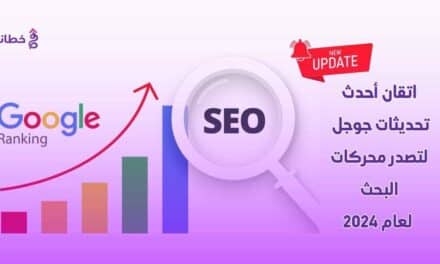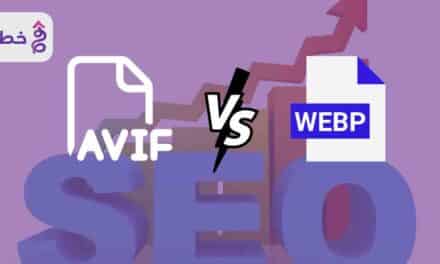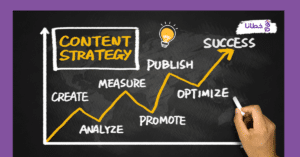table of contents
Website visits
A good SEO strategy for your website can easily get you what you want. Your website, blog, or business will become more visible on search engines, which will lead to increased market exposure, more visitors, and ultimately, more sales. The great thing is that you can achieve all of this without having to pay for advertising. Imagine free advertising 24 hours a day, at no cost. Now learn about SEO in 6 points.
1- What is Search Engine Optimization (SEO)?
Search Engine Optimization (SEO) is simply the process of optimizing content. This process helps both visitors (and search engine crawlers) find the right answers to their questions. The goal of SEO on any website is to increase the volume of high-quality, reliable, and relevant content so that search engines will show your content in search results. By optimizing your website content, you will increase the amount of traffic that will come to your web content from search engines every day.
2- What does improvement mean?
We all know that web content is for people. If you provide great content to your customers and they are happy with it, you will achieve good results. At the same time, there are additional things you can do to optimize your content for search engines, such as using search keywords strategically and paying attention to optimizing the technical aspect of your website to improve the user experience. All of these factors can ultimately lead to improving your search engine rankings.
3- How do search engines work?

Search engine crawlers (also called robots) comb through all the content they can find on the Internet. They do this by following internal links within websites and links across different websites. Robots look at the content on each of your pages (including the URL, links, etc.) to understand what each page is about. All of this information is taken to build what is called an index. The index is used to create search engine results pages (SERPs).
4- What are the three pillars of search engine optimization?
Making your brand, website, or company easily findable by searchers is a key skill in digital marketing, so SEO for your website will keep you at the top of search engines. Although SEO methods are constantly changing, their basic principles remain the same. We can divide SEO into three basic components or pillars that you should be aware of:
1- Technical improvement
Technical optimization is the process of technically improving your website’s design and speed to improve search engine visibility. However, this process is not related to content. A simple example of technical optimization is submitting your sitemap to Google.
2- On-page optimization
On-page optimization is the process of ensuring that the content on your website is relevant and provides a great user experience. It involves targeting the right keywords within your content and can be done through a content management system such as WordPress, Wix, Drupal, Joomla, Magento, or Shopify.
3- Off-page optimization
Off-page optimization is the process of improving your website’s search engine rankings through off-site activities, largely relying on high-quality backlinks, which help build a website’s reputation.
5- What are the factors affecting search engine optimization rankings?
Many factors influence search engine rankings, but content is undoubtedly the most important. High-quality, reliable content will keep your website visitors coming back and attract links from other websites. Inbound links come second to content. The more websites link to your content, the more Google and other search engines trust and value your content and website, which will ultimately impact your website’s search engine ranking. In addition to content and links, here are some other important SEO factors:
- Improve mobile user experience.
- Social media signals.
- HTML markup and schema.
- Use keywords.
- Page load speed.
- Quality of incoming links.
- Number of incoming links.
- User experience.
- Domain authority.
6- Paid Search vs. Organic Search – The Differences
From the outset, it’s important to understand the differences between organic search (SEO) and paid search. Differences between paid search and organic search. There are five main differences between paid search and organic search. Let’s take a look at each one:
1- The site on search engines
The first difference is that paid search results appear at the top of search engine results pages, while organic results appear below them.
2- Time
Another key difference between paid search and organic search is time. With paid search, you can get results quickly, while with organic search, results take longer – often weeks, months, or even years. So, you have to rely on a medium-to-long-term strategy with organic search.
4- Payment
As the name suggests, you pay for paid search traffic, both on a pay-per-click (PPC) and cost-per-click (CPC) basis. This means you pay a fee every time a user clicks on your ad, so instead of relying on natural traffic to your website, you buy traffic to your page by paying Google to show your ad when a visitor searches for your keyword. For organic search, traffic is free, although it requires a lot of time and hard work.
5- Return on investment
In terms of return on investment (ROI), paid search is much easier to measure, in part because Google provides more keyword data that you can capture in Google Analytics (GA4). However, with paid search, ROI can stagnate or decline over time. With organic search, ROI is a little more difficult to measure, but it often improves over time. In the long run, organic search can provide a very good return on investment.
6- Visits to the website
When it comes to traffic, organic search delivers higher traffic than paid search.
In conclusion, in this article, we’ve tried to explain SEO in a simplified manner, focusing on the essential points. Once you understand the basics, you can learn how to leverage SEO to increase traffic and, consequently, potential customers. We hope this information is useful to you. May you be in God’s care and peace.
SEO Article Questions
What is Search Engine Optimization in SEO?
SEO – short for search engine optimization – aims to help search engines understand your content, help users find your site, and decide whether they should visit your site through a search engine.
How exactly does SEO work?
Search engine optimization uses things like keywords, internal and external links, and optimized content to help search engines find content and rank websites higher in search engine results pages (SERPs).
What is SEO strategy?
A search engine optimization (SEO) strategy is a plan to create, optimize, and promote content to increase its visibility in search engine results, thereby attracting more organic traffic to a website. This strategy incorporates a variety of techniques, such as keyword research, on-page optimization, technical SEO, and link building.
How is SEO calculated?
Segment relevant keywords and isolate traffic numbers to conservatively estimate growth potential. Finally, calculate your SEO value by multiplying potential visits by conversion rate and order value, and compare it to the cost of your SEO efforts.
We respect and value your time... half an hour to grow your project
































